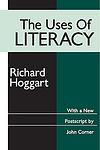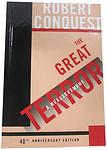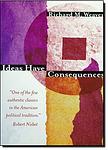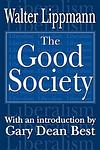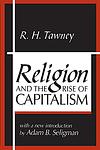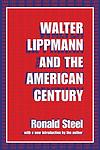The Greatest "Nonfiction, Political, Humanities" Books of All Time
Click to learn how this list is calculated.
This list represents a comprehensive and trusted collection of the greatest books. Developed through a specialized algorithm, it brings together 305 'best of' book lists to form a definitive guide to the world's most acclaimed books. For those interested in how these books are chosen, additional details can be found on the rankings page.
Genres
The "Political" category of books encompasses works that explore the theory, practice, and history of government and politics. These books may cover topics such as political ideologies, political systems, political institutions, political movements, and political leaders. They may also examine the relationship between politics and other areas of society, such as economics, culture, and international relations. Political books can be both informative and thought-provoking, offering readers insights into the complexities of the political world and the challenges of governing in a democratic society.
The category of "Humanities" in books encompasses a wide range of subjects that explore the human experience and expression. This includes literature, philosophy, history, art, music, religion, and language. These books aim to deepen our understanding of the world and ourselves, and to explore the complexities of human culture and society. Through the study of humanities, readers can gain insight into the past, present, and future of humanity, and develop a greater appreciation for the diversity of human thought and expression.
Countries
Date Range
Reading Statistics
Click the button below to see how many of these books you've read!
Download
If you're interested in downloading this list as a CSV file for use in a spreadsheet application, you can easily do so by clicking the button below. Please note that to ensure a manageable file size and faster download, the CSV will include details for only the first 500 books.
Download-
1. The Republic by Plato
"The Republic" is a philosophical text that explores the concepts of justice, order, and character within the context of a just city-state and a just individual. It presents the idea of a utopian society ruled by philosopher-kings, who are the most wise and just. The dialogue also delves into theories of education, the nature of reality, and the role of the philosopher in society. It is a fundamental work in Western philosophy and political theory.
The 142nd Greatest Book of All Time -
2. Democracy in America by Alexis de Tocqueville
This influential book offers an in-depth analysis of the strengths and weaknesses of 19th century American democracy. The author, a French political thinker, provides a detailed examination of the democratic process and its impact on society, politics, and the economy. The work highlights the importance of civil society, local institutions, and the spirit of equality in ensuring the stability of democracy. It also delves into the dangers of majority tyranny, the potential for democratic despotism, and the critical role of religion and morality in sustaining a democratic nation.
The 239th Greatest Book of All Time -
3. On Liberty by John Stuart Mill
This influential philosophical work explores the concept of personal freedom and societal limits, arguing that individuals should have the right to act as they want, provided they do not harm others. The book elaborates on the nature and limits of the power that can be legitimately exercised by society over the individual, and champions individuality and nonconformity. It also discusses freedom of speech, asserting that all opinions should be openly expressed to prevent any single viewpoint from becoming dogma.
The 510th Greatest Book of All Time -
4. The Making of the English Working Class by E. P. Thompson
This book is a comprehensive historical analysis of the formation of the English working class from the late 18th century to the mid-19th century. The author meticulously examines various aspects of society including the Industrial Revolution, the rise of Methodism, and political movements, arguing that the working class was not a byproduct of economic factors alone, but was actively self-formed through struggles over issues like workers' rights and political representation. The book is widely regarded as a seminal text in social history due to its focus on the experiences and agency of ordinary people.
The 548th Greatest Book of All Time -
5. The Open Society by Karl Popper
This book is a critique of totalitarianism and a defense of liberal democracy. The author argues against the concept of a perfect, immutable society, instead advocating for an "open society" that allows for constant change and improvement. He criticizes theories of historical determinism and the notion of "the collective", emphasizing the importance of individual freedom and human rights. The book also examines and challenges the philosophies of Plato, Hegel, and Marx, linking their ideas to the rise of fascism and communism in the 20th century.
The 850th Greatest Book of All Time -
6. A Theory of Justice by John Rawls
This book presents a seminal work in modern political philosophy, where the author proposes a model of justice that, despite being egalitarian, respects individual rights. The author's "veil of ignorance" thought experiment, which suggests designing society from an original position where no one knows their future place in society, has been particularly influential. The author argues that this would lead to a system where each individual is assured basic liberties and socio-economic inequalities are only allowed if they benefit the least advantaged members of society.
The 1129th Greatest Book of All Time -
7. Two Treatises of Government by John Locke
"Two Treatises of Government" is a seminal work in political philosophy, which outlines the author's theories on social contract and natural rights. The first treatise refutes the divine rights of kings, arguing that political power does not come from God but from the people. The second treatise introduces the idea of a government that exists to protect the rights of its citizens, particularly life, liberty, and property. The author posits that if a government fails to protect these rights, the people have the right to overthrow it. This work greatly influenced the development of democratic thought and the structure of modern democratic governments.
The 1143rd Greatest Book of All Time -
8. The Constitution of Liberty by Friedrich von Hayek
This book is a comprehensive analysis of the concept of liberty, emphasizing the importance of individual freedom in political, societal, and economic contexts. The author argues that a free society, where individuals can act according to their own decisions and plans, is the most effective system for human progress. He also explores the relationship between law and liberty, the role of government in a free society, and the challenges to liberty posed by concepts such as social and economic justice.
The 1170th Greatest Book of All Time -
9. The Theory of the Leisure Class by Thorstein Veblen
This book is a socio-economic critique of American consumerism and the upper class, written in the late 19th century. The author argues that the wealthy engage in conspicuous consumption and leisure to display their wealth and maintain their social status. He introduces the concept of "pecuniary emulation," suggesting that the lower classes imitate the consumption patterns of those above them, leading to a wasteful and inefficient economy. The book is a seminal work in the field of economics, providing a satirical yet insightful look into the behavior of the affluent.
The 1193rd Greatest Book of All Time -
10. Natural Right and History by Leo Strauss
This book is an exploration of the concept of natural rights and their relation to history. The author argues that the idea of natural rights is a fundamental aspect of Western civilization and is essential for its survival, but also notes that this concept has been largely forgotten or misunderstood in the modern world. The book examines the origins and development of natural rights, from ancient Greece to the American Revolution, and critiques modern political philosophies that have moved away from this idea. It also discusses the relationship between natural rights and history, and the implications of this relationship for the future of Western civilization.
The 1412th Greatest Book of All Time -
11. The Hedgehog and the Fox by Isaiah Berlin
"The Hedgehog and the Fox" is an essay that presents a philosophical and intellectual dichotomy based on a line from an ancient Greek poet, "The fox knows many things, but the hedgehog knows one big thing." The author uses this concept to categorize thinkers and writers into two groups: hedgehogs, who view the world through the lens of a single defining idea, and foxes, who draw on a wide variety of experiences and for whom the world cannot be boiled down to a single idea. The author uses this framework to analyze the works of various historical figures and philosophers.
The 1826th Greatest Book of All Time -
12. The Uses of Literacy by Richard Hoggart
"The Uses of Literacy" is a sociological study that explores the impact of mass media and popular culture on traditional working-class values and communities in Britain during the mid-20th century. The author combines personal memoir with scholarly analysis to examine how the spread of American consumer culture and the rise of mass media have influenced British society, especially among the working class. The book serves as a critique of the commercialization of culture and the erosion of authentic, local cultures and traditions.
The 2152nd Greatest Book of All Time -
13. The Great Terror by Robert Conquest
"The Great Terror" is a comprehensive analysis of Joseph Stalin's purges in the Soviet Union during the 1930s. The book delves into the brutal and systematic elimination of potential political rivals, intellectuals, and ordinary citizens, who were falsely accused of espionage, sabotage, or being counter-revolutionary. It provides a detailed account of the show trials, executions, and forced labor camps, shedding light on one of the darkest periods in Soviet history.
The 2593rd Greatest Book of All Time -
14. Ideas Have Consequences by Richard M. Weaver
"Ideas Have Consequences" is a philosophical work that explores the societal and cultural impacts of ideas, arguing that the decline of Western society can be traced back to the rejection of absolute truth. The author posits that this rejection has led to moral relativism, materialism, and a culture of self-centeredness. He advocates for a return to traditional values and a recognition of universal truths as a means to restore balance and purpose to society.
The 2665th Greatest Book of All Time -
15. Democracy and Leadership by Irving Babbitt
"Democracy and Leadership" is a critical examination of modern democracy, its strengths, and its potential weaknesses. The author delves into the nature of leadership within democratic systems, questioning the effects of populism and mass movements on the quality of leaders. He argues for a balance between individual freedom and societal responsibility, advocating for a more ethical and principled approach to leadership. The book also explores the impact of humanism and romanticism on democratic thought, suggesting that these philosophies can either enhance or undermine the democratic process.
The 2676th Greatest Book of All Time -
16. The Good Society by Walter Lippmann
"The Good Society" is a critical examination of the economic and political systems of the 20th century, with a focus on capitalism and socialism. The author argues that both systems have inherent flaws and suggests a third way, a form of democratic socialism, which would combine the best elements of both systems. The book offers a comprehensive analysis of the economic, social, and political structures of society, and presents a vision for a more equitable and just society.
The 2697th Greatest Book of All Time -
17. Beyond Freedom and Dignity by B. F. Skinner
This book is a controversial exploration of human behavior that challenges the idea of free will and individual autonomy, arguing instead that human behavior is largely determined by environmental factors. The author proposes that societal issues such as overpopulation, war, and pollution can be addressed by using behavioral science to shape human actions. The book also criticizes traditional notions of punishment and reward, suggesting that these methods are ineffective in influencing behavior.
The 2779th Greatest Book of All Time -
18. Religion And The Rise Of Capitalism by R. H. Tawney
"Religion and the Rise of Capitalism" is a comprehensive exploration of the historical relationship between the development of capitalism and the evolution of religious thought, particularly Protestant Christianity. The author delves into the moral and ethical dimensions of capitalism, arguing that its growth was significantly influenced by certain religious ideas. The book also discusses how religious beliefs have shaped economic systems and societal norms, and how these, in turn, have impacted religion.
The 3437th Greatest Book of All Time -
19. A Preface to Morals by Walter Lippmann
This book is a philosophical exploration of morality in a post-religious, modern world. The author argues that with the decline of religion, society has lost its moral compass. He suggests that instead of turning to religious dogma, individuals should seek morality through personal introspection and reason. The author also proposes that ethics should be based on the principles of tolerance, understanding, and respect for others. He advocates for a new moral code that is grounded in humanistic values and the pursuit of truth.
The 3438th Greatest Book of All Time -
20. The Strange Death of Liberal England by George Dangerfield
"The Strange Death of Liberal England" is a historical analysis that explores the decline of the Liberal Party and the rise of the Labour Party in early 20th century England. The book delves into the socio-political factors that led to this shift, including the suffragette movement, the Irish Nationalist movement, and the labour unrest. It provides a detailed account of the political landscape of the time, highlighting the internal conflicts and external pressures that brought about the end of the Liberal era.
The 3452nd Greatest Book of All Time -
21. The Subjection of Women by John Stuart Mill
"The Subjection of Women" is a seminal work that advocates for gender equality and women's rights. The book argues against the social and legal subordination of women to men, challenging the widely held belief that it's natural, inevitable, and beneficial. The author posits that women should be given the same rights as men, including voting rights and the opportunity to pursue any profession. He further argues that society would greatly benefit from the intellectual contributions of women if they were allowed to participate fully in all areas of public life.
The 4151st Greatest Book of All Time -
22. Walter Lippmann and the American Century by Ronald Steel
This book provides an in-depth look at the life and work of Walter Lippmann, one of the most influential journalists in American history. The author explores Lippmann's role in shaping 20th century American politics and public opinion, his relationships with key political figures, and his views on democracy, liberty, and international relations. The book also examines Lippmann's personal life, including his early years, education, and family life.
The 8343rd Greatest Book of All Time -
23. Between War and Peace: The Potsdam Conference by Herbert Feis
This book provides a detailed account of the Potsdam Conference, a crucial event in world history that took place in the summer of 1945. It explores the interactions and negotiations between the three most powerful men of that time - Winston Churchill, Harry Truman, and Joseph Stalin - who were tasked with deciding the fate of post-WWII Europe. The book also delves into the political dynamics, personal conflicts, and the profound implications of the decisions made during this conference.
The 11112th Greatest Book of All Time -
24. The Dred Scott Case by Don E. Fehrenbacher
This book provides an in-depth analysis of the Dred Scott case, a significant event in American history that heightened tensions between the North and South, leading up to the Civil War. The author meticulously examines the political, social, and legal contexts surrounding the case, the individuals involved, and the controversial Supreme Court decision that ruled African Americans were not citizens and could not sue in federal court. The book further explores the case's profound impact on the nation, contributing to the secession of Southern states and the onset of the Civil War.
The 11225th Greatest Book of All Time
Reading Statistics
Click the button below to see how many of these books you've read!
Download
If you're interested in downloading this list as a CSV file for use in a spreadsheet application, you can easily do so by clicking the button below. Please note that to ensure a manageable file size and faster download, the CSV will include details for only the first 500 books.
Download










